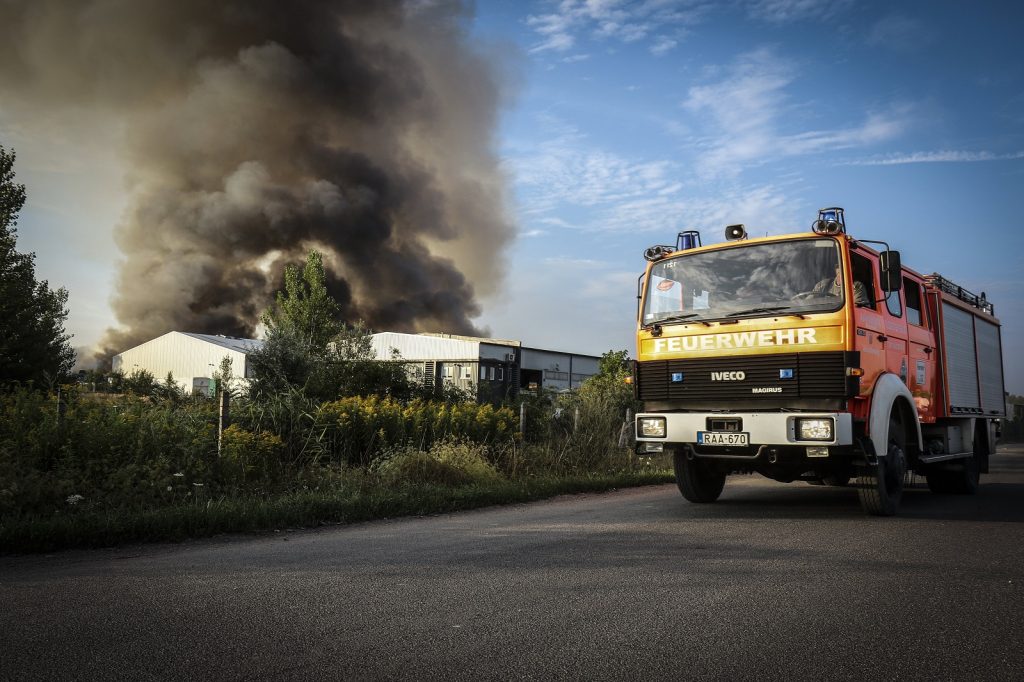The https://english.atlatszo.hu use cookies to track and profile customers such as action tags and pixel tracking on our website to assist our marketing. On our website we use technical, analytical, marketing and preference cookies. These are necessary for our site to work properly and to give us inforamation about how our site is used. See Cookies Policy
OLAF finds irregularities in EU-funded waste management projects in Hungary – we have investigated one
According to the announcement of the European Anti-Fraud Office (OLAF) published on 23 November, during an investigation they found mismanagement of funds in case of four EU-funded waste management projects. The projects were intended to make waste management more efficient and environmentally friendly, however, OLAF detected several planning and design errors as well as a breach of project objectives. These led to several fires, with dangerous emissions and a negative impact on air quality, and to a terrible smell inhabitants of surrounding municipalities needed to endure for years.
In 2019, Átlátszó investigated the landfill in Királyszentistván which caught fire three times that year, covering the area around Balatonfűzfő with thick black smoke, soot and ash. There was a regular smell of rotting rubbish in the area, and over the years hundreds of complaints and dozens of official letters were written by citizens, but for a long time no substantial progress was made.

The landfill was established in Királyszentistván, on the outskirts of Balatonfűzfő, as part of a major EU development project, with an investment cost of around €26 million (about HUF 7.3 billion at the time, more than 10 billion today).
A year or two after the opening, residents in the surrounding villages began to complain of stench. During expert examinations, it became clear that the source of the stench was the Királyszentistván facility, primarily the depot (the area where the waste is finally dumped), the leachate reservoir and the biological hall (where the biological waste is loaded and treated). The smells could be smelled from a distance of 3-5 km on several occasions.
The landfill is owned by the North Balaton Regional Municipal Solid Waste Management Association. The Association was established in 2005 by 158 municipalities with the aim of jointly managing waste in the region and jointly developing and operating the waste management system. This was mainly achieved with EU funds, and the Királyszentistván landfill is part of this system.
However, the facility is not operated by the owner, but by another company: the North Balaton Waste Management Non-profit Ltd (ÉBH), which was established as a consortium of six municipal companies. The secondary fuels produced at the site are the property of the state-owned waste management holding (National Waste Management Coordination and Asset Management Ltd, NHKV) which was established in 2016, and they are obliged to transport them from the site. However, the NHKV does not always remove the baled material at the right pace, which sometimes results in the bales catching fire.
The fires occurred in the biological treatment hall, in the yard of the landfill and in the depot where the bales were stored. According to the experts consulted at the time, spontaneous combustion occurred, which usually indicates that the organic matter content of the waste is high. Under the provisions of an EU legislation adopted in 2018, biodegradable organic waste must either be collected separately or composted at home by 2024.
In our 2019 story, we also showed that in the years before the state-owned holding, NHKV started its operation, the ÉBH managed to provide waste management services in the region for around HUF 1 billion a year (although usually at a small loss). Under the new system, however, from 2016 it is increasingly expensive to maintain the same waste collection system each year: in 2018 it cost more than HUF 4 billion. It can also be seen that the bulk of the revenue came from the NHKV at a steeply rising rate (while it is not supposed to collect higher fees from the public due to the government’s price cut).
At the same time, it was striking that the amount of money paid to subcontractors increased at a similar rate. These costs were stable at around HUF 400-500 million a year before the new system, but then started to rise sharply: last year, HUF 2.4 billion was paid to subcontractors. Unfortunately, we have not been able to identify them at that time.
Stench, fire, flies & rats – billions of forints disappearing from waste facility near Balatonfűzfő
After one hot summer day, residents of Balatonfűzfő would open their windows to ventilate their homes, but instead of the cool, fresh air, they only feel a stench of rotten garbage. Having an evening barbecue in the garden or eating dinner on the balcony has become impossible.
OLAF is now proposing to the European Commission to withdraw €10.9 million (roughly HUF 4.4 billion) in EU funding because of abuses uncovered during investigations into four EU-funded regional waste management projects; the projects concerned were not named in the announcement or in response to Átlátszó’s enquiries.
Written and translated by Orsolya Fülöp. Hungarian version of this story. Cover photo: Smoke rises from the fire at the Királyszentistván landfill site on 10 August 2019. Nearly a thousand square metres of waste is burning, with more than eighty firefighters working to extinguish it. MTI/Tamás Matyus

